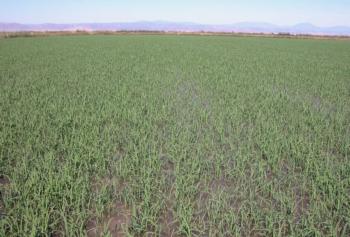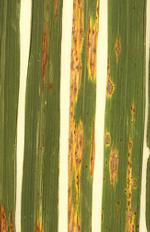Christopher Greer
Cultivating a key crop

“Rice doesn’t use any more water than many other crops,” Greer said. “Much of the water standing in a rice field is not lost.”
After suppressing weeds and pests in the rice field, water that flows out of the field is used elsewhere or returned to the river.
“When it comes off rice, the water quality is pretty good,” Greer said. “Sediments have settled out. The main concern is possibility of herbicide residues, but over many years UC ANR and the industry have worked collaboratively to developed best management practices – like water holding times – to effectively address these issues. Over time, we have been able to significantly increase the quality of water leaving the field.”
California farmers typically produce over a half-million acres of rice annually, with a market value of about $1 billion. But during the last two years of drought, the acreage has been cut by more than 25 percent, posing a significant hardship to growers, laborers associated industries, and rural economies.
“Imagine if you had your salary cut by 25 percent,” Greer said.
Researching rice pathogens
While Greer was still working on a doctorate degree in plant pathology at UC Davis in 1996, he made a key discovery. At the time, California was thought to be free of rice blast, a fungal disease caused by Pyricularia grisea, which is considered the most serious rice disease worldwide. Greer observed symptoms of the disease in Sacramento Valley fields. Tests confirmed the presence of the fungus. In a late-1990s survey of more than 500 rice fields in five Sacramento Valley counties, rice blast was confirmed in 33 of them.
Throughout his career, Greer has continued to research and advise farmers about rice blast and other diseases. He said water management plays a critical role in controlling rice blast disease.

Researchers are also looking for rice varieties that are resistant to rice blast. UC ANR Cooperative Extension advisors regularly work with rice breeders at the California Rice Experiment Station to evaluate new varieties for their suitability under California growing conditions and for other characteristics, such as yield, milling quality and disease resistance.
Looking to UC ANR's future

“We are working with our partners – farmers, state and federal agencies, local governments and commodity organizations – to identify new areas of need for the people of California,” Greer said.


